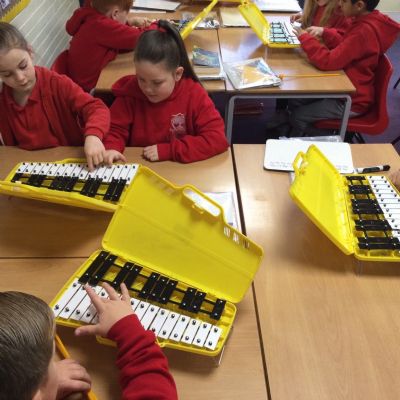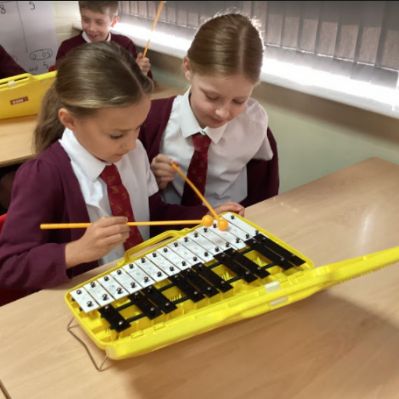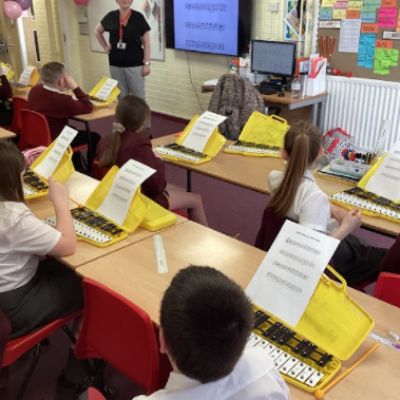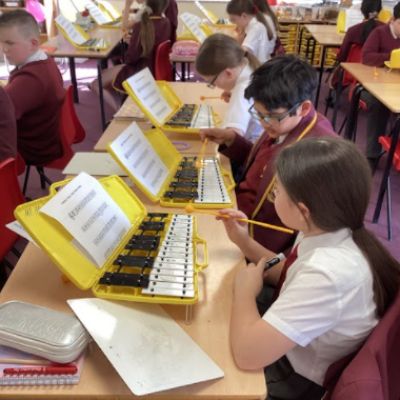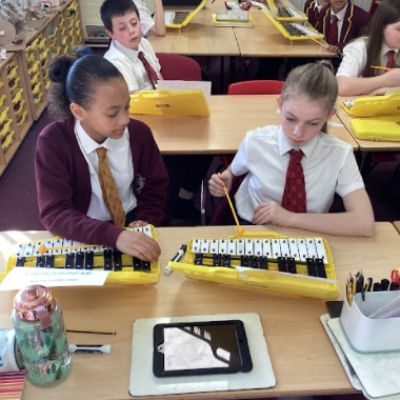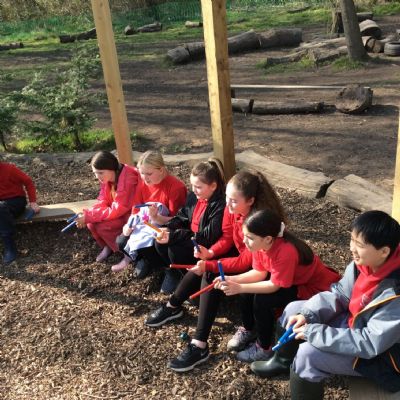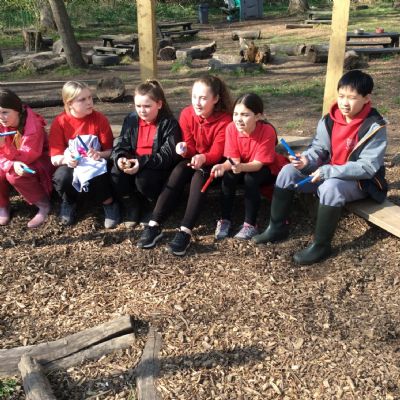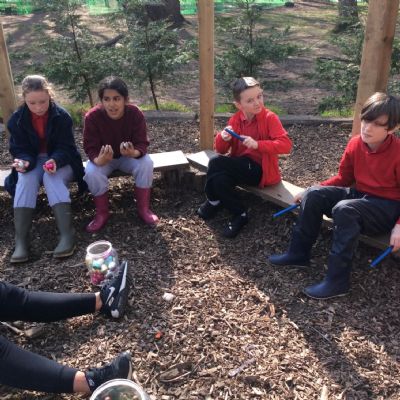Spring Term
Nursery
Children will:
- Learn about fast and slow rhythms.
- Express their understanding of rhythms they have heard through their bodies.
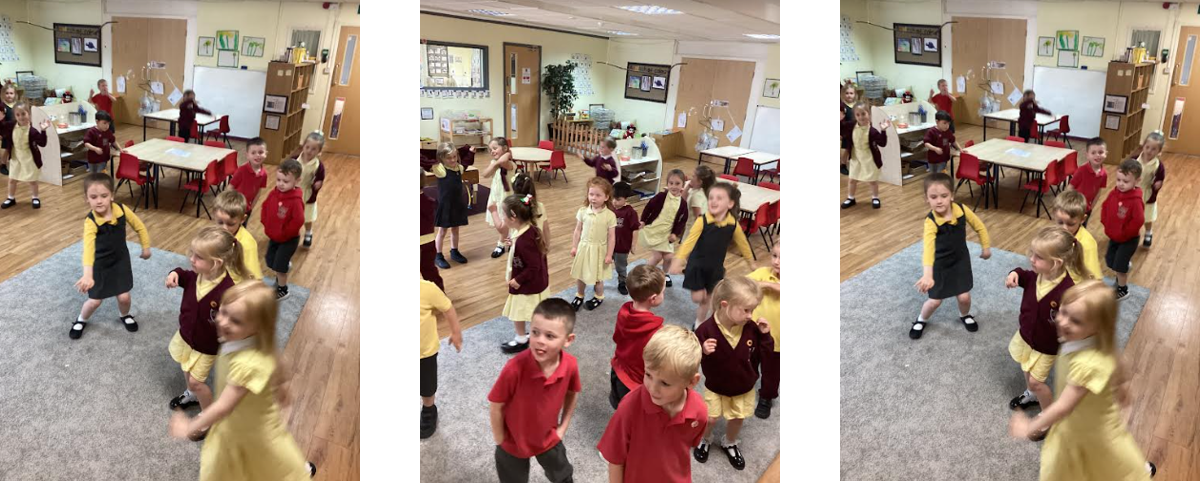
Reception
Spring 1 - Music and movement
In this topic, children will:
- Children come up with simple actions to well-known songs, learn how to move to a beat and express feelings and emotions through movement to music
- Know and use terms - fast/slow and high/low.
- Follow a steady pulse. Respond to music through movement altering movements to reflect the tempo, dynamics or pitch.Perform a song in a group or on their own.
- Sing back short melodies using at least 2 pitched notes, copy short rhythmic patterns
- Hum along to a melody
- Listen attentively, move to and talk about music expressing their feelings and responses

Spring 2 - Musical stories
In this topic, children will:
- Using traditional childrens' tales and songs pupils will move to music changing movements to match the tempo, pitch or dynamic of the piece.
- Understand that music and instruments can be used to convey moods or represent characters.
- Play an instrument as part of a group.
Year 1
Spring 1 - Timre rhythmic patterns (Fairytales)
In this topic, children will:
- Through fairy tales, be introduced to the concept of timbre; learning that different sounds can represent characters and key moments in a story.

Spring 2 - Pitch and Tempo (superheroes)
In this topic, children will:
- Identify high and low notes and to compose a simple tune
- Investigate how tempo changes help tell a story and make music more exciting
Woodland
Year 2
Spring 1 - Musical Me
In this topic, children will:
- Learn to sing the song ‘Once a Man Fell in a Well’ and to play it using tuned percussion.
- Use letter notation to write a melody.
Spring 2 - Dynamics, timbre, tempo, motif (Space)
In this topic, children will:
- Develop knowledge and understanding of dynamics, timbre, tempo and instruments, identifying elements in music, comparing pieces by the same composer.
- They visually represent music in creative and more formal ways, learn to play and compose motifs.
Woodland
Year 3
Spring 1 - Pentatonic Melodies (Chinese New Year)
In this topic, children will:
- Revise key musical terminology, playing and creating pentatonic melodies, composing a piece of music using layered melodies.
Spring 2 - Jazz
In this topic, children will:
- Learn about ragtime style music, Dixieland music and scat singing.
- Create a jazz motif using a swung rhythm of a song with actions.
Year 4
Spring 1 - Changes in pitch, rhythm and dynamics (Rivers)
In this topic, children will:
- Learn to listen to changes in pitch, tempo and dynamics and relate it to something familiar.
Spring 2 - Music and performance (Hanami Haiku)
In this topic, children will:
- Wirte melodies to their own Haiku’s and perform.
Year 5
Spring 1 - African Music
In this topic, children will:
- Learn ‘Shosholoza’, a traditional South African song, play the accompanying chords using tuned percussion and learn to play drums.
Spring 2 - Holi
In this topic, children will:
- Explore the associations between music, sounds and colour, building up to composing and performing their own musical composition to represent Holi.

Year 6
Spring 1 - Songs of World War Two
In this topic, children will:
- Continue to develop pitch, control and confidence when singing.
Spring 2 - Theme and Variation (Pop Art)
In this topic, children will:
- Explore the musical concept of theme and variations and discover how rhythms can ‘translate’ onto different instruments.
Woodland

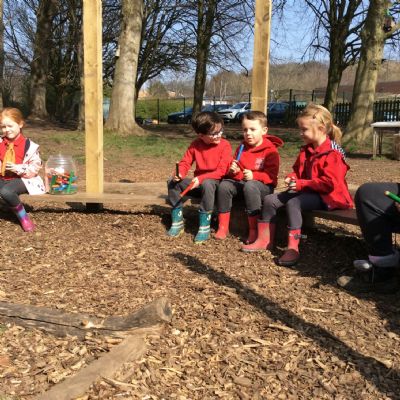
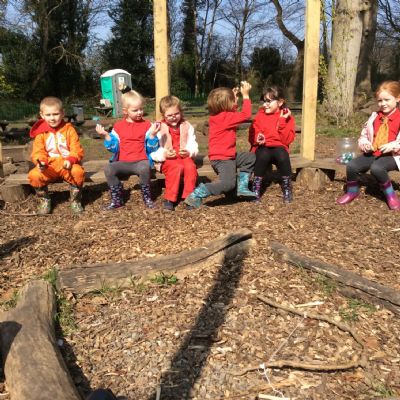
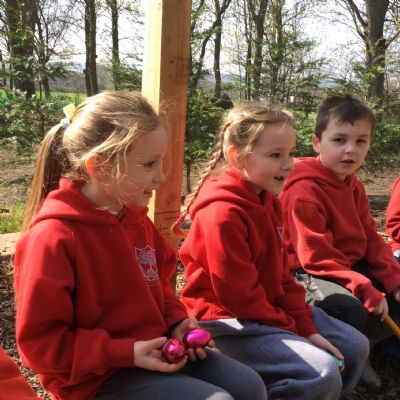
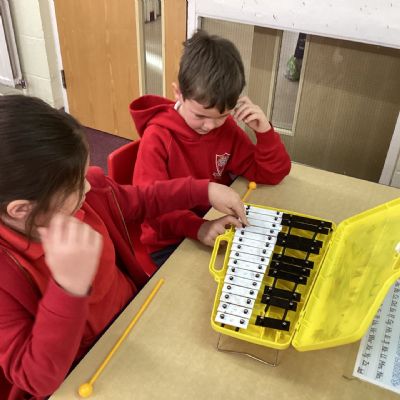
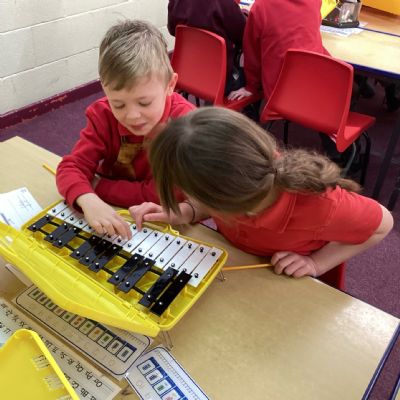
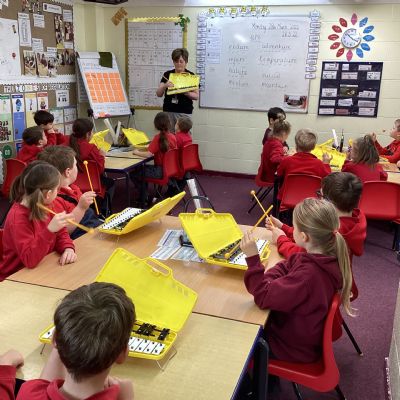
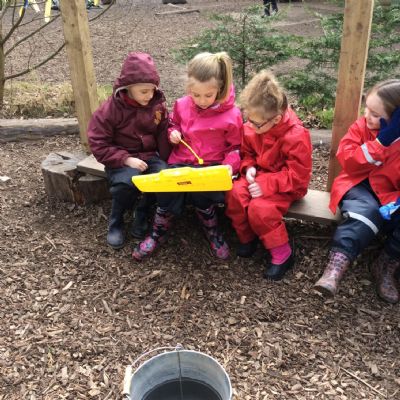
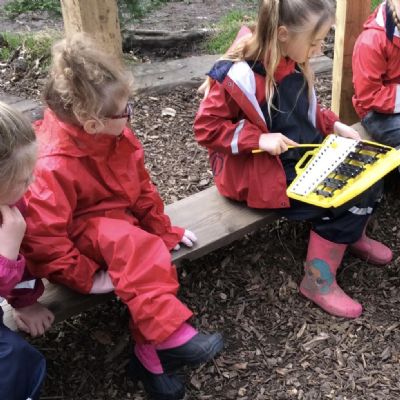
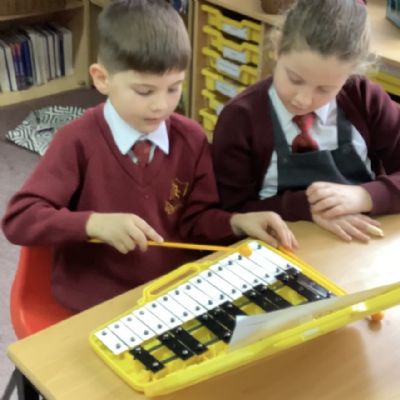
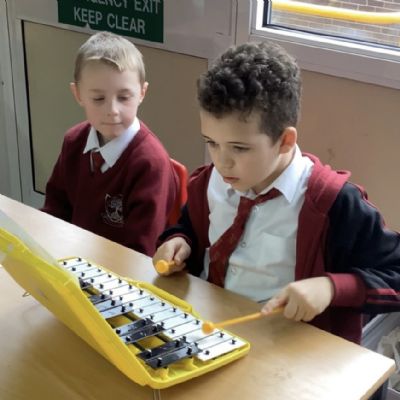
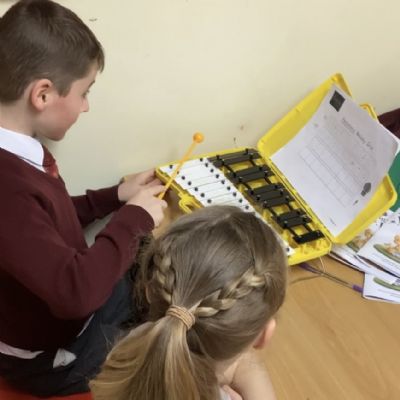
.jpg)
.jpg)
